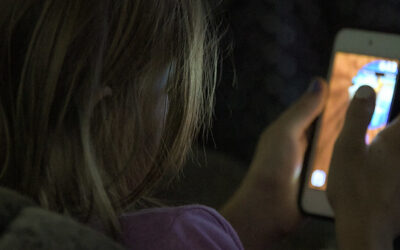Photo: Derksen Photography
This summer is weird.
Spring 2020 was basically three months of quarantined, screen-filled days. We couldn’t wait to move on to summer…which is starting to look like three more months of trapped-at-home, screen-filled days. Sounds kind of depressing.
Do you really want three more months of the same? Is this how we want to parent?
Before quarantine, US teens spent more than seven hours per day on screen entertainment. Tweens spent nearly five hours. And get this: that doesn’t include time spent using screens for school and homework.
Douglas Gentile, a professor of psychology at Iowa State University, said the reported screen time levels are “really kind of scary” because they amount to nearly 60 hours spent on screen media weekly, which leaves little time to do anything else of value.[1] Gentile said this before quarantine resulted in many families throwing pre-quarantine screen limits out the window.
Good parents can disagree on how to approach screen rules for their kids. But all parents have witnessed the aftermath of a kid screen binge. Grumpiness, anger, irrational meltdowns. Their moods are simply better after board games than after a YouTube marathon. This isn’t unique to kids. Think about how you feel after an endless scroll session, versus after reading a book or swimming with your kids.
The magnetic lure of the phone is real, for parents and kids alike. If adults need to be mindful about our own phone usage, think about how difficult this must be for kids, who are still learning the discipline of delaying gratification, of choosing the better thing over the easy thing.
According to the American Academy of Child and Adolescent Psychiatry, “Screen entertainment is so engaging that most children and teens lack the insight and discipline to effectively limit their own use. Left unchecked, screen habits quickly dominate the lives of many youth, displacing those behaviors most vital to well-being.”[2]
In short, our kids need our help.
Here’s one idea: give your kids a screen detox.
A year and a half ago, we hesitantly implemented a Digital Detox for our five kids, ages 3-9. I feared the worst: anger, boredom, screen withdrawals. Reality proved the opposite. The kids’ creativity exploded. They started several clubs: Creators Club (in which they created a cardboard ATM and a Hot Dog Dispensing Machine,) Curtain Club (in which they meet to tell stories and eat snacks together behind a living room curtain), Jungle Club (where they hang out in various trees in the yard). They’ve made couch forts, read books faster than we could buy them, wrote letters to grandma. I could go on. After several months of zero screens, my nine year old daughter actually thanked me for taking them all away. I was shocked by our results. I had no idea how much entertainment had been stifling our kids’ creativity, contributing to sibling arguments and irritability. The detox was exactly what we needed to gain some clarity for our family’s long-term technology approach. (To read more about our detox, and how you can start your own, click here. )
All modern parents are grappling with how to handle screen entertainment rules for their kids this summer. Whether you decide to put your kids on a screen detox, or designate specific hours only for screen entertainment, your job is so important.
How are you feeling about screen time in your home as we head into summer? Have you made any household changes in the wake of quarantine? What are your favorite screen-free bonding activities? What approaches to technology have worked well in your home?
Nervous that your kids will be bored if you remove screen entertainment? Check out Screen-Free Summer Activities for Kids Ages 2-12. We’ve used these ideas for our own kids and foster kids with resounding success.
[1] https://www.cnn.com/2019/10/29/health/common-sense-kids-media-use-report-wellness/index.html
[2] https://www.aacap.org/App_Themes/AACAP/Docs/resource_libraries/covid-19/Screen-Time-During-COVID.pdf





0 Comments